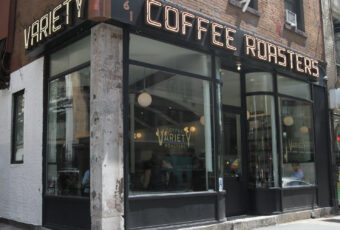
Wrinkler Bakery
One of the special treats the bakery makes are cookies that use the same recipe that Winkler used over 200 years ago. Located close to nearby modern pubs, boutique hotels, and even a minor league baseball team, visiting the bakery will feel like you’ve traveled back in time to the 19th century.
They still use a wood-heated oven, and a small team of bakers create cookies for Christmas using methods dating back centuries, and are even older than 26 of the States in the union. According to North Carolina Field & Family reports, the bakery continues to use historically accurate baking techniques in order to show what it was really like in the 1800s.

They Bake Their Pastries The 19th Century Way
One of the bakery’s employees, Amanda Bumgardner, told North Caroline Field & Family: “The bakers usually arrive between five and six in the morning to fire up the wood-burning ovens. By around 7:30 a.m., the fire has normally burned out, and the bricks are fully heated. It usually gets to around 700 degrees. They have to wait for the oven to cool to around 400 degrees.”
Winkler Bakery is thought to be the oldest bakery in the state. The team of bakers made their ginger-spiced Moravian cookies from scratch. They’re related to German Lebkuchen cookies, as many Moravian settlers came from what is present day Germany. A baker and reenactor at the bakery named Sister Deborah shared that the cookies are made the way they always have been.

Traditional Ginger Cakes
She said that the secret is the molasses: “This is actually a nutritious dessert with black molasses, ginger, and spices that will soothe a cough or congestion. The black molasses strengthens your blood, and it’s delicious!” The cookies are distinctively thin and crispy, which also helps maximize the amount the bakers can make, while making them easy to transport as well.
Bumgardner said: “It’s hard work, but our bakers have been doing it for years. I think it’s really interesting to have things that are still done by hand in this time.”








